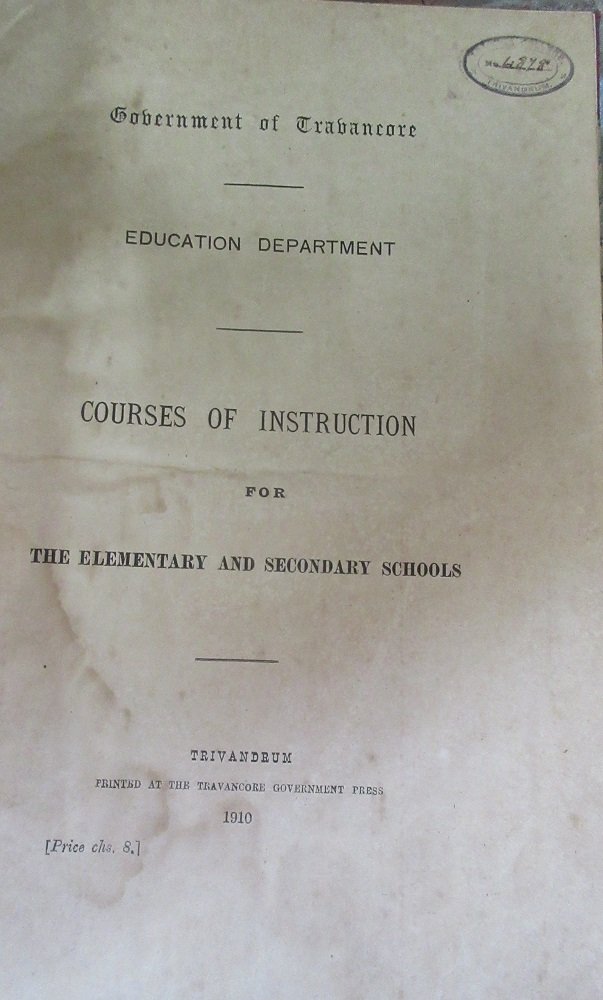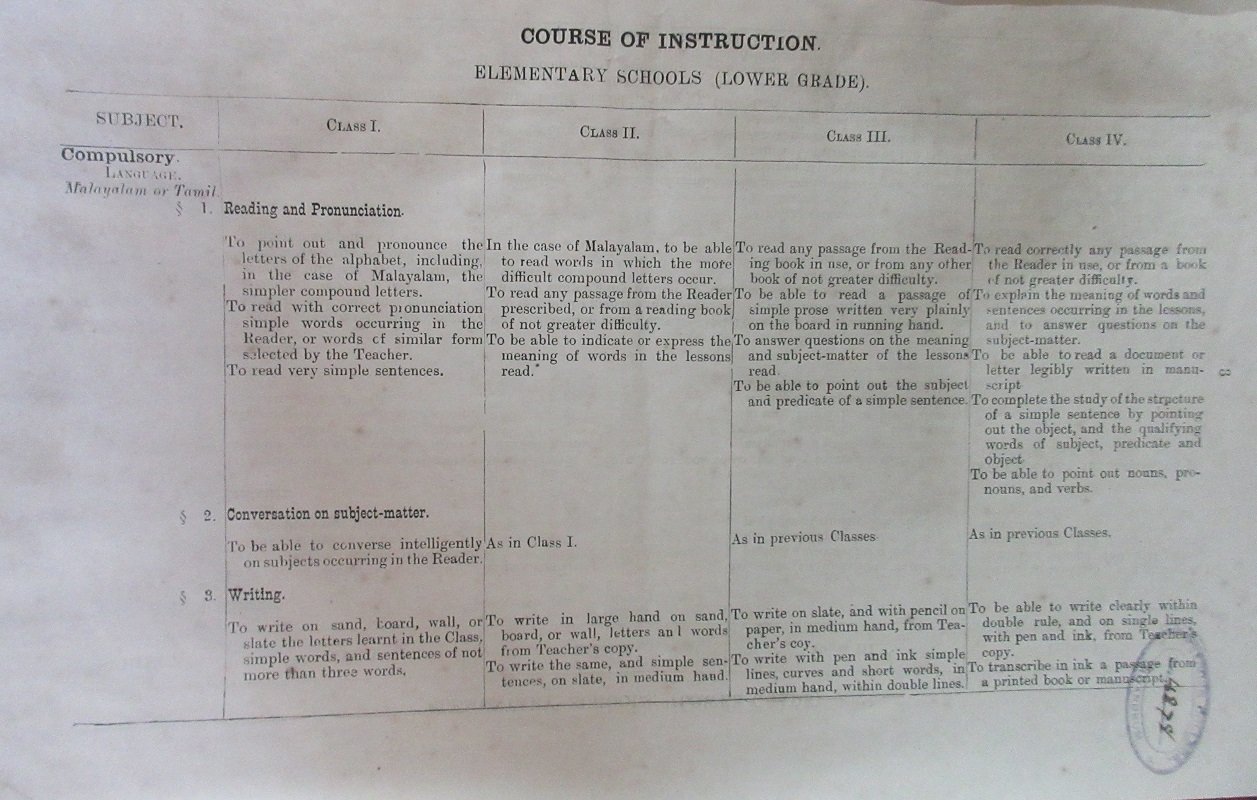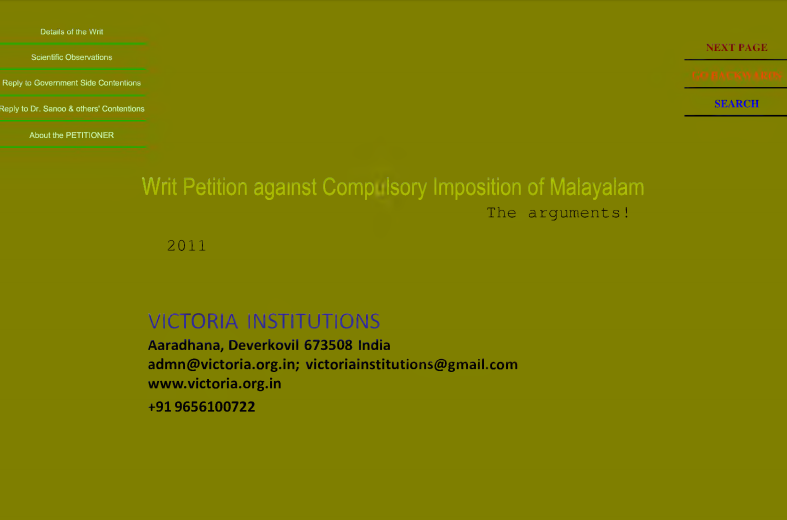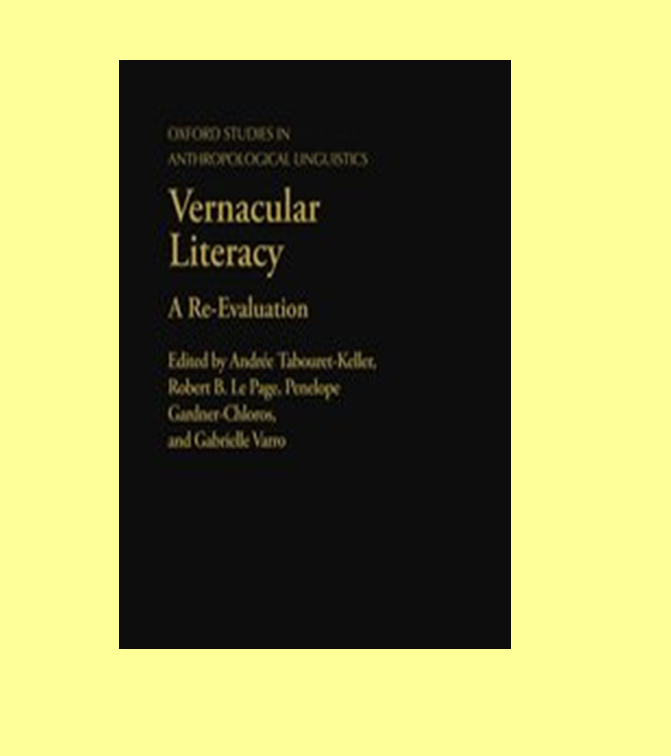Curio Critique # 14: Languages compulsorily taught in Travancore
| Sl. No. | Curio Book Title | Year of Publication |
|---|---|---|
| 14 | Government of Travancore-Education Department-Courses of Instruction for the Elementary and Secondary Schools | 1910 |
Curio Book

Curio Reference
The Administrative Report of Travancore 1866-67, makes a reference to the vernacular education of the institutionalized type in every village: “The country abounds with indigenous schools, which furnish abundant facilities to the population to acquire the rudiments of knowledge. Any person who desires that his children should learn reading, writing and arithmetic need not go beyond his village.”( P 78)
Significantly enough the Government of Travancore’s Education Department guideline for elementary and secondary schools makes Tamil and Malayalam compulsory.

Related References
Today, Thiruvananthapuram, the former Travancore has a sizeable number of children in schools whose parents hail from other states in India and are working in both MNC’s and Central Government establishments. One wonders how such children would perceive the compulsory teaching of the local language.
A few years ago, Mirici, Galleano and Torres conducted a study to develop an understanding of immigrant families’ attitudes towards language learning in the United States. An observation in their report reads: “...immigrant children who do not receive native-language support in educational settings may feel resentful of their English language learning experiences since they may begin to become more dominant in their English abilities in comparison to their native-language abilities...” P 138
Source Mirici, Ismail Hakki etal.(2013) Immigrant Parent vs Immigrant Children:Attitudes Towards Language Learning in the US in Novitas-Royal (Research on Youth and Language) 7(2) 137-146
The Internet Archives has a document with a peculiar title: Writ Petition against Compulsory Malayalam Study: An argument against teaching feudal language. In it, an argument of the petitioner reads: Parents spend a lot of money and daily efforts to get their children to school, where their children are simply fooled into believing that they are learning a lot, even without learning a bit of English.

A book published under the Oxford studies in Anthropological Linguistics edited by Andree Tabouret-Keller is entitled Vernacular Literacy A Re-evaluation.

The book is the outcome of observations on literacy made by scholars who have been plunged into fieldwork where vernacular-literacy questions came to the fore. The book, filled with exemplifications from both the ‘developed’ and ‘developing’ worlds makes a significant observation: “...the economic argument must be a very powerful one. As long as all the people with the best jobs in the government and in large corporations expect to operate in English, aspiring parents will want to have an English-medium education for their children and it may well be difficult to convince them that the best route to that is through a vernacular-medium primary school unless the quality and preparation of its teachers are clearly outstanding. P 68.
Curio Quest
Some children may have a particular language as their mother tongue, but the circumstances may be such that they may be using a different language for daily communication at home. What would be the effect on achievement, interest in academics and cognitive development of children compulsorily taught a language they are not interested in and which they never use for communication at home?
